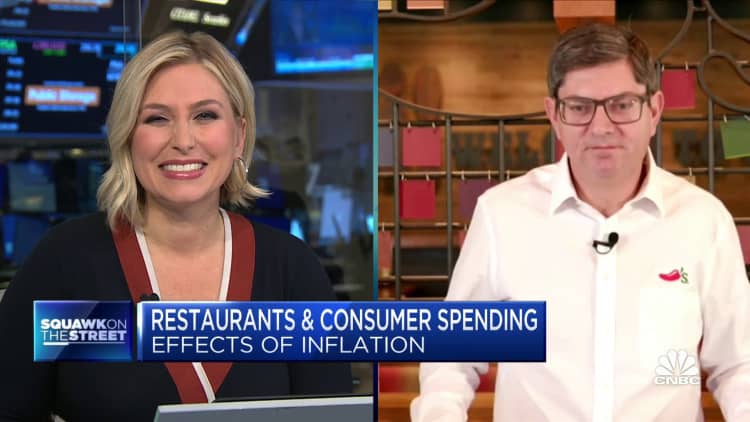
Veselka is serves from its original location, which opened in 1954 in Manhattan’s East Village neighborhood.
CNBC Make It
It’s not just your imagination. Restaurants aren’t open as long as they used to be.
Eateries have trimmed their weekly operating hours by 7.5%, or 6.4 hours, compared with pre-pandemic schedules, according to a new report from Datassential.
The food analytics firm found that 59% of the more than 763,000 U.S. restaurants are operating on shorter schedules in October than they were in 2019. Every state except Alaska saw a decrease in restaurants’ average weekly operating hours.
Datassential co-founder and CEO Jack Li attributed the scheduling changes to a few factors. Restaurants are still struggling to find enough workers to staff their locations, and cutting hours is one way they’re addressing that challenge. The slow return to the office means weaker demand in business centers. And areas that closed down aggressively during the pandemic are still bouncing back. States with Democratic governors saw steeper reductions to restaurants’ hours than those led by Republicans, according to the report.
Independent restaurants have been hit even harder, losing 7.5 weekly hours on average. Chains with more than 501 locations, by contrast, have cut their schedules by an average of four hours per week, the report said.
“Chains have things like robotics, automation and technology upgrades that can largely enable them to make do without as many people,” Li said.
But some chains have seen more dramatic changes to their schedules. Denny’s weekly hours have fallen by nearly a third, while Texas Roadhouse, IHOP and Subway have all seen their averages shrink by double-digits.
Those chains’ significant drop in operating hours is likely due to the reduction of diners and other eateries that are open for 24 hours. The reduced hours are also hitting the New York metropolitan area’s restaurants, which on average have slashed their weekly schedules by more than 9 hours, Datassential found.
In one zip code of Manhattan’s East Village, three-quarters of eateries reduced their hours compared with 2019, Datassential found.
Among those is Veselka, a neighborhood staple, which was open 24 hours a day, seven hours a week since 1991 until the pandemic hit. Now, the restaurant still shutters every night by 11:30 p.m. and reopens at 8 a.m. even though New York City has lifted its dining restrictions.
Co-owner Jason Birchard told CNBC that the main issue has been finding and retaining workers, although some of the decision also came from a reluctance to serve late-night customers.
“Early on, the crowd that was late out at night was just a crowd that I didn’t want to market to. It was just an obnoxious drunk crowd, I hate to say,” he said.
The addition of outdoor dining tables has helped Veselka offset the lost sales from closing before midnight. The restaurant has also seen a surge in traffic since Russia invaded Ukraine as customers sought to show their support for the invaded country. (Veselka raised $250,000 for relief efforts by donating a portion of its borscht sales.)
After it closes temporarily for renovations in early 2023, Veselka will resume its 24/7 service, Birchard said.
In Seattle, restaurants have shaved an average of 7.7 hours from their weekly hours. Daisley Gordon, owner of Cafe Campagne, also said labor was the reason for going from operating seven days a week before the pandemic, to four and a half days.
“I feel like if we were open seven days a week, we’d be happy with the revenue,” Gordon said.
The restaurant has been searching for enough cooks to staff its kitchen, he said, and is slowing adding to its staff. Gordon predicts that Cafe Campagne will be open seven days a week by the spring, when it’s had enough time to train new workers.
Datassential’s Li said he believes a few factors will dictate if restaurants expand their operating hours: the labor market and broader economic environment, as well as the shift in consumer behavior.
“My guess is the reduction in the restaurant hours is going to be with us for at least a little while,” he said.

